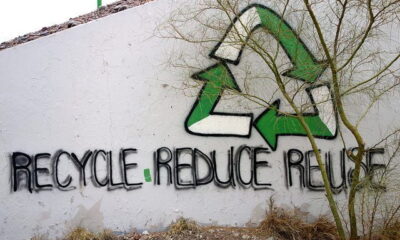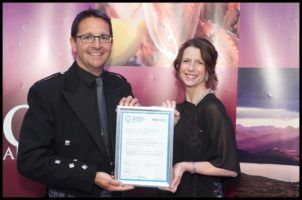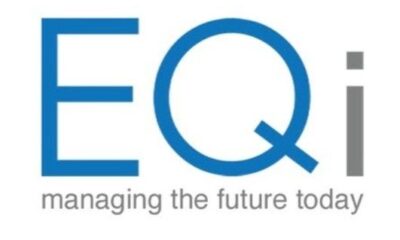

Economy
Democratising Sustainability Part 1
The World Commission on Environment and Development (WCED), known as the Brundtland Commission gave us the much quoted definition of what sustainable development should embrace: “development that meets the needs of the present without compromising the ability of future generations to meet their own needs.” Steve Burt, CEO EQi Group, writes in a recent LinkedIn post.
1) Sustainability
Little did Gro Harlem Brundtland (who chaired the commission) realise that her work would be used to define many varying and self-serving agendas for governments, businesses and green enthusiasts. Since releasing the commission’s findings in the report named Our Common Future, more commonly known as the Brundtland Report, in October 1987, the word sustainability, in definition and term, has been abused, maligned and manipulated to suit money making and political agendas.
The clever and skilful use of the word sustainability by marketers has only served to pervert its understanding and importance and tarnish the public’s understanding of what ultimately will affect them and could be the most significant challenge facing mankind. The broad nature of the original definition has provided an open ended translation for all and sundry to interpret, use and abuse to fit any description of any service or product that may in some way be able to claim lower consumption in its production over a previous version.
The word sustainability, its meaning and value, needs to be repositioned, revalued and strictly protected against the marketer’s sleight of hand, the politician’s self-serving agendas and business’ appetite to stretch its meaning. The challenge in repositioning the value and importance of sustainability is being able to gain an accurate understanding of our current consumption and its effect in both economic and ecological terms. A clear and defined method of evaluating, measuring, tracking and reporting is now required.
To date, methods and process of understanding and evaluating sustainability have been hijacked by Non-Governmental Organisations and Not for Profits. Their standards and methods are focused to meet their interpretation and/or agendas of building membership rather than investor grade metrics. Although their purpose may sound or be founded on well-meaning, their methods encourage distortion of the real position, praise of poor performance and awards meeting their criteria rather than real sustainable progress.
The most pervasive and damaging effect on the term sustainability has been created by the fundamental way organisations, marketers, consultancies, and consumers use the word in communications. Systems, products and services are ubiquitously labelled ‘sustainable’; however, sustainability is an outcome state, derived from and directly related to an input, and it is achieved by aligning consumption and damage effects to within our planet’s capacity to replace or absorb. Sustainability is a state of being in balance with planet Earth.
How can sustainability be purchased when sustainability is a state that can only be achieved as a result of matching consumption, emissions and impacts levels to the biosphere’s ecological limits? If the term sustainability does mean a state of balance rather than a system, product or service then should not every human be involved in understanding their part in what is required to achieving a global sustainable living state?
Since the turn of the century a plethora of experts, thought leaders, companies, products, services and systems have all claimed to have the clear vision or magic solution with retailers implementing world changing initiatives. A multitude of standards, compliance systems and reporting mechanisms have been developed, promoted and championed, yet the effect since the turn of the century has been that carbon intensity has increased.
In 2008 the UK Guardian published an article named 50 People Who Could Save the Planet which further underlines the idiosyncratic approach the world has pursued, ‘Trust us, we are experts.’ Such thinking is exclusive, damaging and wrong. The facts show that the current bandwagon and supporting cast of experts, standards, systems and reporting initiatives have failed. A new approach is required if we are going get the world to change its current unsustainable living model into one that balances with the biosphere.
This is the first of 7 posts that will seek to challenge the existing knowledge paradigm by democratising sustainability through sharing untarnished and factual information to bring clarity to this much mis-addressed subject. The focus is about educating people on how they can play their part in achieving a biosphere consumption balance and hence a sustainable society.
The following posts will show there is a different way to help society become more sustainable using an encompassing inclusive approach, rather than the current endless reporting, grand political and private self-serving initiatives.
1) Sustainability
2) The Background
3) The Human Issue
4) The Business Issue
5) The Compliance Effect
6) Transparency and Trust
7) The Consumption Challenge
I believe that sustainability should be democratised to allow all humans to make personal choices regarding the way they wish to contribute to reducing human impact. The marketing spin needs to be banished and untarnished information needs to be made readily available throughout our society.
EQi is a data and technology company that connects business to sustainability by providing resource efficiency management solutions. EQi has announced successful certification as a founding UK B Corporation.


 Features9 months ago
Features9 months agoWhat is the Eco-Friendliest Option to Wash Your Dishes?

 Environment12 months ago
Environment12 months agoBuilding a Career in Green Construction: Tips and Insights

 News10 months ago
News10 months ago5 Ways Fleet Maintenance Software Can Help Businesses Be More Eco-Friendly

 Features10 months ago
Features10 months agoAddressing Pressing Ethical Concerns with Crypto Exchanges





























